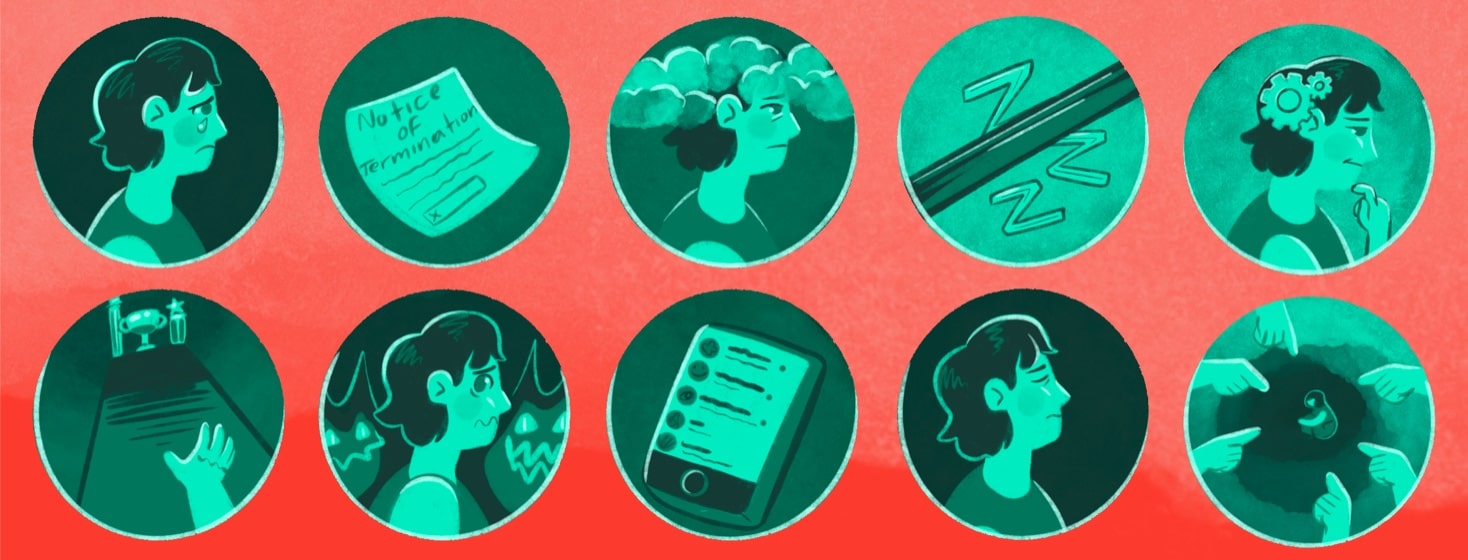Narcolepsy Is Not "Just Falling Asleep"
So many people don't know what narcolepsy is. Those who do have limited knowledge and understanding. Thanks to its portrayal in the media, a lot of people think that narcolepsy is "just" falling asleep.
That being said, even if it was "just" falling asleep, it would still have a significant impact on our lives, and that impact should not be minimized.
However, what many people are not aware of is that narcolepsy is not just falling asleep.
This or That
Have you ever been told that narcolepsy is "just falling asleep"?
The profound impact of narcolepsy on daily life
Minimizing narcolepsy down to this perception completely underestimates the complexity of the disorder. It underestimates how difficult it can be to manage. Most of all, it underestimates the debilitating impact it can have on our lives.
There are so many other symptoms that come with narcolepsy other than excessive daytime sleepiness. I will never stop telling people about them, because some of them have just as big an impact on our lives as excessive daytime sleepiness.
What are the other symptoms of narcolepsy?
People are often unaware of the range of symptoms of narcolepsy or don't truly understand what they are. The cataplexy. The automatic behavior. The nightmares. The sleep paralysis. The hallucinations. And so on.
Not only that, but narcolepsy is more than a list of its symptoms. It impacts every part of your being, physically, mentally, emotionally, and socially. Narcolepsy is not just falling asleep. It can also include:
- Being unable to hold a conversation because of brain fog
- Being so exhausted you have no choice but to lie down
- Tasks taking twice as long because of the sleepiness and automatic behavior
- Nightmares feeling like memories and emotional flashbacks
- Having to miss out on things because you're too exhausted
- Being forced to nap in random and uncomfortable places
- Being terrified of going to sleep
- Waking up in extreme pain after a night of nightmares
What aspects of life do people with narcolepsy often manage in addition to symptoms?
Additionally, narcolepsy is more than just managing the impact that your symptoms have on you. Living with narcolepsy involves dealing with and learning to cope with the consequences of having narcolepsy.
These can all take a huge toll on your mental health. Some of these include:
- Feeling different or not able to keep up with friends and family, do the same things
- Struggling to get or keep a job
- Grieving for how your life used to be and how it could have been
- Not being able to socialise as much
- Dealing with misinformation and stigma
- Always educating people about narcolepsy
- Constantly advocating for yourself
- Being misdiagnosed
- Feeling alone and isolated
- Your life goals no longer being attainable
And the list goes on.
Narcolepsy has a profound impact on us
Narcolepsy changes your relationship with sleep - a fundamental part of our functioning as humans. Something that humans spend 1/3 of their lives doing.
So when that goes wrong, it's no wonder that it has a profound impact on individuals; yet this, too, is totally underestimated in narcolepsy.

Join the conversation